Lectionary Commentaries

MISSION SUNDAY (MISSION WORK ABROAD)
LECTIONARY COMMENTARY
Sunday, May 5, 2013
Dawn Sanders, Guest Lectionary Commentator
Director of Missional Programs for the Lott Carey Convention, a mission agency founded in 1897 supporting indigenous communities in over 20 countries around the world. Rev. Sanders provides capacity building and technical assistance for churches and indigenous ministries.
Lection – Mark 6:34-44 (New Revised Standard Version)
(v. 34) As he went ashore, he saw a great crowd; and he had compassion for them, because they were like sheep without a shepherd; and he began to teach them many things. (v. 35) When it grew late, his disciples came to him and said, “This is a deserted place, and the hour is now very late; (v. 36) send them away so that they may go into the surrounding country and villages and buy something for themselves to eat.” (v. 37) But he answered them, “You give them something to eat.” They said to him, “Are we to go and buy two hundred denarii worth of bread, and give it to them to eat?” (v. 38) And he said to them, “How many loaves have you? Go and see.” When they had found out, they said, “Five, and two fish.” (v. 39) Then he ordered them to get all the people to sit down in groups on the green grass. (v. 40) So they sat down in groups of hundreds and of fifties. (v. 41) Taking the five loaves and the two fish, he looked up to heaven, and blessed and broke the loaves, and gave them to his disciples to set before the people; and he divided the two fish among them all. (v. 42) And all ate and were filled; (v. 43) and they took up twelve baskets full of broken pieces and of the fish. (v. 44) Those who had eaten the loaves numbered five thousand men.
I. Description of the Liturgical Moment
Mission Sunday (Mission Work Abroad) is a moment on our church calendars where we often revisit the verses of Scripture that affirm the “going” called for by the Great Commission (Matthew 28:16-20). But just as important as this text is to our missional task, so is our need to reflect upon the pre-evangelistic work of the Great Commandment, “to love thy neighbor as thy self,” without which there can be no transformation of souls in Christ or mission work whereby we live out our salvation through compassion shown to others.
As light-bearers “sent” to carry the Good News, Mission Sunday is a time to evaluate our hearts before we proceed to join God on Mission. Our love for the voiceless and the invisible around the world cannot be sustained once a year on Mission Sunday. However, this moment on the calendar is a time to quicken the hearts of people to reimagine their role in the plan of God, shifting from just the “activity” of missions, to cultivating a love and compassion for people around the world (John 3:16). Howard Thurman affirms the missional task as wedded to our love for God and our love for our neighbor:
II. Biblical Interpretation for Preaching and Worship: Mark 6:34-44
Part One: The Contemporary Contexts of the Interpreter
According to the World Food Programme (WFP), there are 870 million undernourished people in the world today. In fact, hunger and malnutrition are the number one risks to health worldwide—greater than AIDS, malaria, and tuberculosis combined. Mission Sunday is therefore a significant time of revisiting our call and commissioning those who feel the drawing of the Spirit to step beyond the insular confines of churches to become agents, advocates, and ambassadors for Christ on global missions.
In my role as Director of Missional Programs for Lott Carey, I am often asked by various churches within our network to take part in their Mission Sundays. The task for me is typically threefold: to present an uncompromised Gospel; to compel people to see as God sees those who suffer around the world; and then to get people to act given what they see in God and God’s suffering people. When I reflect upon Mark 6:34, I imagine Jesus seeing not only a crowd of people, but every face, every concern, and every injustice, and being moved with compassion for each person individually.
Today’s text also brings to mind my recent visit to Kisumu, Kenya. After traveling for hours to this remote region, I knew only God could have sent me to such a deserted place to minister to hidden people. Despite the difficulties of the journey, I knew we could not turn back. When we arrived, one man stood up and addressed our group with these words: “Keep our faces before your eyes. Never forget what you saw here.” I have carried those words in my spirit ever since. When we see suffering people, we cannot close our eyes to their existence or their needs, no matter the costs. The Church is being sent out to save, to heal, and to restore the nations of the world through seeing them as not just communities that we help but as our neighbors who we can teach to help themselves.
Part Two: Biblical Commentary
In Mark 6:34-44, Matthew 14:13-21, Luke 9: 10-17, and John 6:1-15, we see versions of today’s text. The feeding of the five thousand presents for us not only the miraculous but also the communal nature of our Christ. His compassion for the multitude is central to the sequence of events that take place within this short periscope. Although this story is told in all of the Gospels, the Markan passage does not mention Jesus healing the people, but rather presents Jesus as the “teaching” Shepherd, discipling his people, while modeling for his disciples how to serve those he loves. Missions is therefore depicted as the acting out of our proclamation from a heart of compassion.2 Albert Schweitzer viewed the feeding of the five thousand as an “eschatological sacrament,” observed in anticipation of the great feast to be held in the approaching kingdom of God.3
Without compassion for the circumstances of people, it is impossible to serve with God on mission. Mark describes the vulnerability of the multitude as “sheep without a shepherd” (v. 34) in juxtaposition with the compassion of Christ, the “Good Shepherd.” The text illustrates for us the pastoral nature of Christ, who places the needs of the people before his own (v. 31). In the text, “compassion” in the Greek is the term splagxnizomai, which refers to the inward parts—to be moved as to one’s bowels, hence to be moved with compassion or to have compassion (for the bowels were thought to be the seat of love and pity).4
The remote location, the time of day, and the scarcity of the resources caused the disciples to seek a “legitimate” means to abandon the people in their time of need (vv. 35-36). Their words, “send them away,” denote a callousness in stark contrast to the compassion of Christ and stand in ironic tension with their preceding mission as commissioned agents of Jesus’ ministry (6:7-13, 30) called to heal and preach repentance. It reveals their failure to understand the significance of the miracle itself as Mark comments at the end of the chapter indicate (6:52).5 Yet the imperative of missions presupposes the divine intervention of the Lord working in concert with the compassionate nature of God’s people in community.
The disciples are perplexed by the demand of Jesus to meet the needs of the multitude (vv. 37-38). Confronted by their hunger, the disciples rebel against Jesus’ request, citing how great an expense such a sacrifice would be on behalf of the intruding crowd. Their response denotes not only their reluctance but also their distorted view of Christ, whom they assume is mistakenly placing such a costly task before them. Their moment of disorientation is a familiar dilemma experienced by those on mission with God. Yet Jesus, undaunted by their bewildered reaction to his command, “you give them something to eat,” presses their missional obligation even further. As if to say, “Never mind what is impossible. Mind what is possible. What resources do you have? Look and see.”6
The disciples are given not only the directive to feed the people, but also a deliberate strategy that addressed their capacity as leaders; the dignity of the people is affirmed as the disciples grouped small communities (vv. 39-40). The five loaves of bread and two fishes signified the insufficiency often present in ministry, but the lack of food did not restrict the power of God to multiple meager resources to feed a multitude. Importantly, this passage also shows that the resources will not come from the disciples alone; Jesus tells them to assess the resources of the people. Jesus knows that acting in concert, what the disciples have and what the people have is enough.
The breaking of the bread and the blessing can be viewed both literally and figuratively (vv. 41-42). The breaking of bread is a formulaic expression signifying the beginning of the meal in the Jewish tradition. It also points directly to the inseparable significance of the Triune God in the activity of missions. Jesus looking up to heaven presents himself in total unison with the Father as he serves the people on mission.
Mark indicates that all of the people were filled and there was a surplus of twelve baskets (vv. 43-44). The miraculous takes place, transforming a crowd of wondering people into a community for Christ despite the blindness of the reluctant twelve.
Missional churches must be holistic in their practice. Ronald E. Peters describes this multifaceted approach as the “eight lens” of urban ministry:
And, I would add, any area in the world.
This passage serves as a model for missions that ought to be replicated by the Church, and it allows us to impact each of the foci given by Ronald Peters: 1. Jesus discipled the people (v. 34a); 2. he was moved with compassion for people (v. 34b); 3. he advocated for the people (v. 37); 4. he empowered the people (vv. 39-40); and 5. he depended on God to provide for the people (v. 41). Ultimately, our view of God and how God moves in the world will determine how we see and serve God’s people around the world.
As we consider mission work abroad, our work must be holistic in intent and in impact. We must first ask ourselves the question, With what eyes do we see suffering people?8 Do we see them as members of God’s creation who we are to help? Or do we see them as our neighbors with whom we can share and partner? Without eyes of compassion that show us our neighbors as those we love as we love ourselves, we will relegate the work of missions to a committee of a few, rather than place the irrevocable call before our entire congregation to join God on mission to the world.
Celebration
Matthew 7:16 declares that we will be able to recognize the people of God by their fruit. Not by their talent or degrees, but by their “fruit”—how we love God and how we love our neighbor. Songwriter Adelaide A. Pollard, who felt hopeful that she would one day serve as a missionary to Africa, was devastated by the cancellation of her mission assignment in 1902, and she penned these words:
Thou art the Potter, I am the clay.
Mold me and make me after Thy will,
While I am waiting, yielded and still.
Although we may not always know how the Lord will use us, his promise in John 21:20 still rings true: “As my Father hath sent me, even so send I you.” And, when God sends us, God will empower and provide for every mission.
Descriptive Details
The descriptive details in this passage include but are not limited to:
Sounds: The concerned whispers of the people: will they be sent away to fend for themselves or will their needs be met given the host of others in their situation? (v. 35); the murmuring of the disciples debating among themselves about what appeared to be an impossible assignment (vv. 36-38);
Sights: The vastness of the people surrounding Jesus; everyone in Jesus’ presence being fed individually and collectively (v. 34); the food presented by the people that the disciples had not originally seen; and
Smells: The smell of the bread and fish being disbursed throughout the crowd (v. 41).
III. Books to Assist in Preparing Sermons, Bible Studies, Community Engagement, and/or Worship
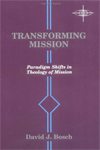 |
Bosch, David. Transforming Mission: Paradigm Shifts in Theology of Mission. Maryknoll: Orbis Books, 1991. |
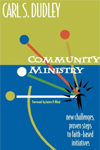 |
Dudley, Carl S. Community Ministry. Washington, DC: The Alban Institute, 2002. |
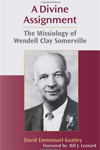 |
Goatley, David Emmanuel. A Divine Assignment. St. Louis: Lucas Park, 2010. |
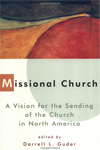 |
Gruder, Darrell. Missional Church: A Vision for the Sending of the Church in North America. Grand Rapids: Eerdmans, 1998. |
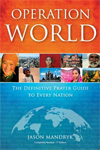 |
Mandryk, Jason. Operation World. Colorado: Biblica Publishing, 2010. |
 |
Pate, Stephen and Gene Wilkes. Evangelism Where You Live: Engaging Your Community. St. Louis: Chalice Press, 2008. |
 |
Phillips, Todd. Get Uncomfortable: Serve the Poor. Stop Injustice. Change the World…In Jesus’ Name. Nashville: Thread Media by Lifeway, 2008. |
 |
Piper, John and David Mathis. Finish the Mission: Bring the Gospel to the Unreached and the Unengaged. Wheaton: Crossway, 2012. |
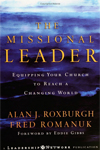 |
Roxburgh, Alan and Romanuk, Fred. The Missional Leader: Equipping Your Church to Reach a Changing World. San Francisco: Jossey-Bass, 2006. |
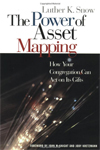 |
Snow, Luther, K. The Power of Asset Mapping: How Your Congregation Can Act on Its Gifts. Washington, DC: The Alban Institute, 2004. |
IV. Additional Resources for Mission Sunday (Mission Work Abroad)
Hymns
- Only What You do for Christ Will Last. By Raymond Rasberry
- Wherever He Leads I’ll Go. By B.B. McKinney
Helpful Websites
- 1,000 Days is an advocacy hub that champions new investment and partnerships to improve nutrition during the critical 1,000 days between a woman’s pregnancy and a child’s 2nd birthday. Online location: http://www.thousanddays.org/
- The Balm in Gilead develops educational and training programs specifically designed to meet the unique needs of African American and African congregations serving persons impacted by HIV/AIDS. Online location:
http://www.balmingilead.org/index.php/hiv/hiv-initiatives/capacity-building.html
- Bread for the Word is a collective of Christian voices urging our nation’s decision makers to end hunger at home and abroad. Online location: www.bread.org
- International Justice Mission is a human rights agency that brings rescue to victims of slavery, sexual exploitation, and other forms of violent oppression. Online location: www.ijm.org
- Lott Carey, a global Christian missional community, helps churches extend their Christian witness to the ends of the earth and offers multiple resources concerning anti-human trafficking, disaster relief training, and equipping young adults for missions. Online location: http://www.lottcarey.org/youth-development
- Calling Congregations is a Lott Carey program for clergy seeking short-term mission assignment. Online location: http://www.lottcarey.org/pastoral-excellence-network
Notes
1. Thurman, Howard. Jesus and the Disinherited (Boston: Beacon Press, 1976), 89.
2. Newbigin, Leslie. The Open Secret: An Introduction to the Theology of Mission (Grand Rapids: Wm. B. Eerdmans Publishing Company, 1978), 39.
3. Buttrick, George A. The Interpreter’s Bible, Vol. 12 (Nashville: Abingdon Press, 1951), 738.
4. Mounce, William D. Mounce’s Complete Expository Dictionary of Old and New Testament Words (Grand Rapids: Zondervan, 2006), 128.
5. Guelich, Robert A. Word Biblical Commentary, volume 34a (Dallas: Word Books Publisher, 1989), 338.
6. The Interpreter’s Bible, Vol. 12, 741.
7. Peters, Ronald, E. Urban Ministry (Nashville: Abingdon Press, 2007), 159.
8. Goatley, David E. Missions Is Essential (Washington, DC: Lott Carey, 2011), 11.



